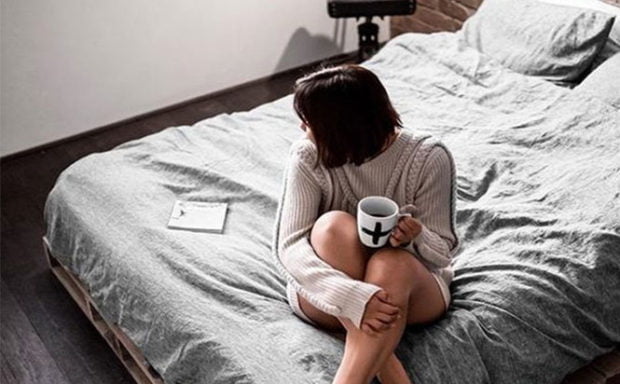Sometimes its hard to know if you are overreacting in a situation, or if someone meant to hurt you physically or emotionally. Here is some key ways to know if you are being disrespected or abused, and what to do.
When they look back, victims of domestic violence often say that they find it hard to remember the exact time when the abuse started. The beginning is often subtle, beguiling, insidious and very difficult to pinpoint. Then one day they realise that behaviours and patterns they had been taking for granted and accepting were, when put together, forming an unpleasant picture.
Often they say that ‘if only they had realised earlier’ they would have done something about it. Yet is it one of qualities of domestic abuse that it starts small. Slowly slowly it grows until it becomes intolerable – yet still many women continue in the relationship in the hope that things will change.
 Image via pinterest
Image via pinterest
There are several signs that your partner may be capable of not always being the sweet, loving person they appear to be, and may actually have a far darker side which means that the relationship is not healthy for you. The first is in your own feelings towards them: Do you sometimes feel afraid of your partner? You may not be quaking in your boots, but you may find that you avoid certain topics for fear of angering them.
The second is in your partners behaviour, and in particular a tendency to criticise. It starts with something slight, just a remark about your body or your clothes but it causes you to have self-doubt and to lose confidence. A healthy relationship allows for positively critical comments but they are delivered in such a way that you know that they are meant well, and do not cause any crisis of confidence. If your partner says things which make you doubt yourself, they are toxic and need to be addressed.
If they do not criticise, they may want to control you. Everyone needs to have privacy, and be free to have some part of their lives that are private. If you partner wants to know where you are all the time, what you are doing, who are you seeing, and does not respect your right to privacy in areas of the home, there is possibly a problem brewing.
If you notice either of these things – criticism or controlling – the earlier you respond to them the better. Say how they make you feel – say to your partner, ‘When you say that it makes me feel criticised/ controlled and I don’t feel good or happy about that.’
Then say, ‘The way I’d rather you behave is … ‘ and outline your preferred behaviour. It could be that criticism or comments are made in such a way that they are helpful, or that you are able to have areas of your life that are private. Your partners response will tell you much.
If they are apologetic and are open to suggestions about different behaviour, you know that you can feel safe and the relationship is just going through growing pains. If, however, your partner is defensive or offers an inadequate response, especially, ‘I was only doing it because I love you’, your alarm bells should be ringing. If they become abusive or start name-calling, the writing is definitely on the wall.
You may choose to just watch out for other similar behaviour before taking action. That’s fine, but don’t wait too long. If you notice that your partner starts to make threats of any sort as a way of controlling you, or begins to display an unpredictable or aggressive behaviour, or in any way blames you for their own behaviour, your alarm bells should be flashing very loudly. Its at this point that a professional intervention is strongly recommended.
In Imago Relationship Therapy we have ways of helping couples who have reached this point. The controlling or critical behaviour, and temper outbursts, are almost always linked to childhood experiences, and while its not healthy for partners to make excuses or allowances for abusive or intolerable behaviour, understanding why we behave the way we do is very helpful in moving relationships into a healthy and happy rhythm.
It may just be a case of establishing clearer boundaries, or helping a partner to become aware of the hurtful consequences of their criticism or controlling behaviour, which they may not even realise is critical or controlling.
In a healthy relationship both partners respect the other, respect and honour their independence and differences between them. There is no suggestion that they should become one person, or that one partner is better than the other. A healthy relationship is one where you like the other, want to spend time with them, and being with them makes you feel good about yourself. Being belittled or disrespected is not going to make you feel good about yourself.
The important thing to remember is that no relationship is fixed or static – they are always continually evolving as living entities. Things we do affect them, and we have the power to control the way relationships behave, and how good they are for us. A relationship that has deteriorated into a suffocating, fearful state is no good for anyone, but need not stay that way. Like people, relationships can change and grow into something beautiful and full of love.
THINGS TO WATCH OUT FOR:
If you:
Feel afraid of your partner
Avoid topics that you fear might upset them
Avoid meeting friends with your partner for fear of being embarrassed
Feel unhappy
If your partner:
Criticises and/or humiliates you
Treats you so badly that you are embarrassed in front or your friends
Blames you for their behaviour / says its because they love you
Threatens you
Wants to control you / know where you are/ know where you are going / who you are seeing
Doesn’t allow you any privacy
Tries to prevent you seeing your family or friends
WHAT YOU CAN DO:
Say how you feel
Suggest how you’d like your partner to behave
Make it clear that you are independent, and separate from them
Say what upsets you or makes you fearful, and what you need to see change.
If the response to any of those is further abuse, or the suggestion that they can’t help themselves (untrue) or its your fault (untrue) or its because they love you (untrue), you need to get help immediately, and consider your options.
For more information and to get in touch with Annie, head to www.anniegurton.com
Feature image via pinterest




















